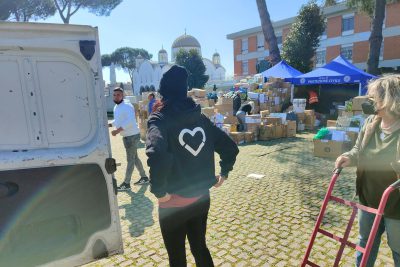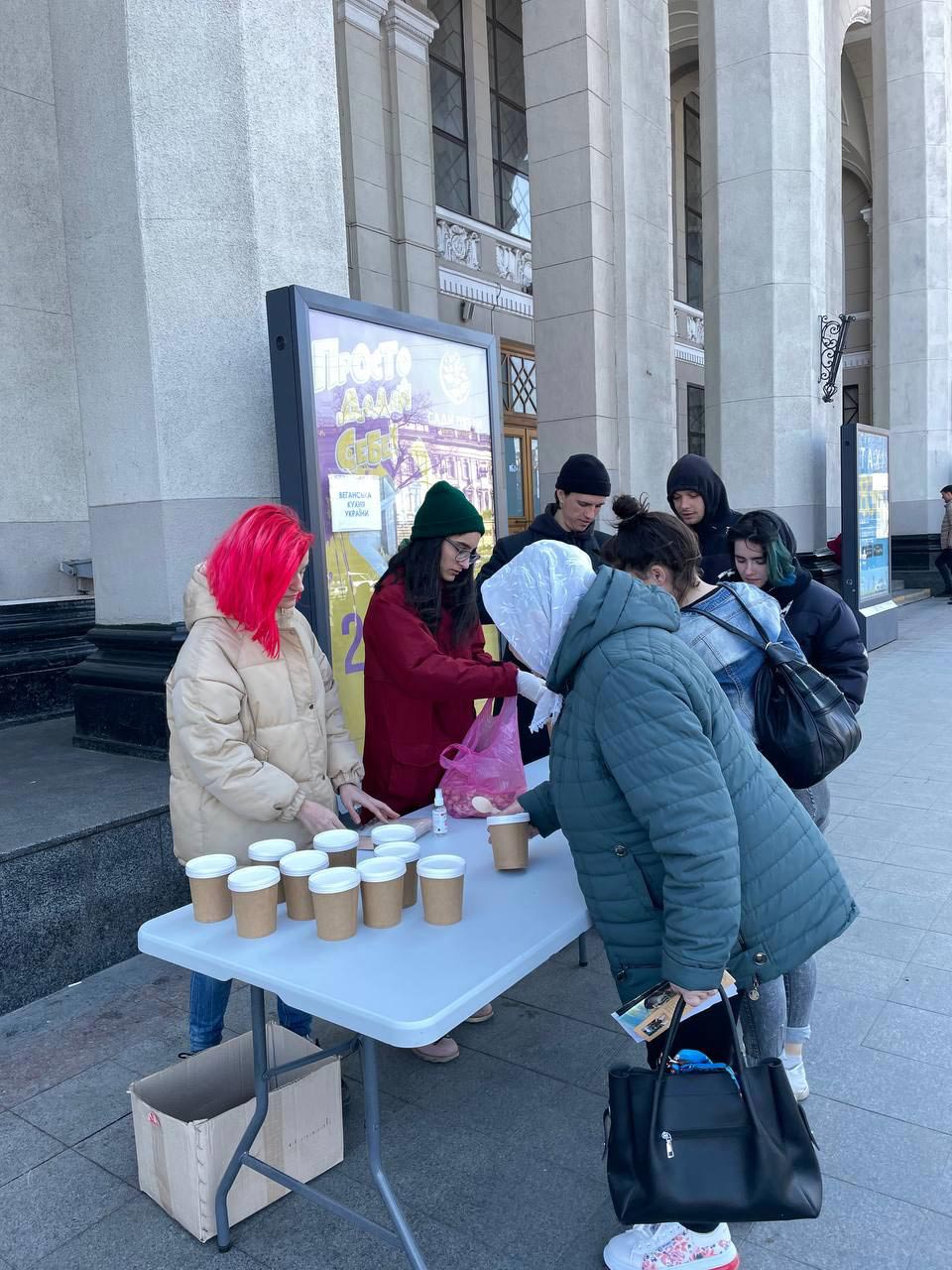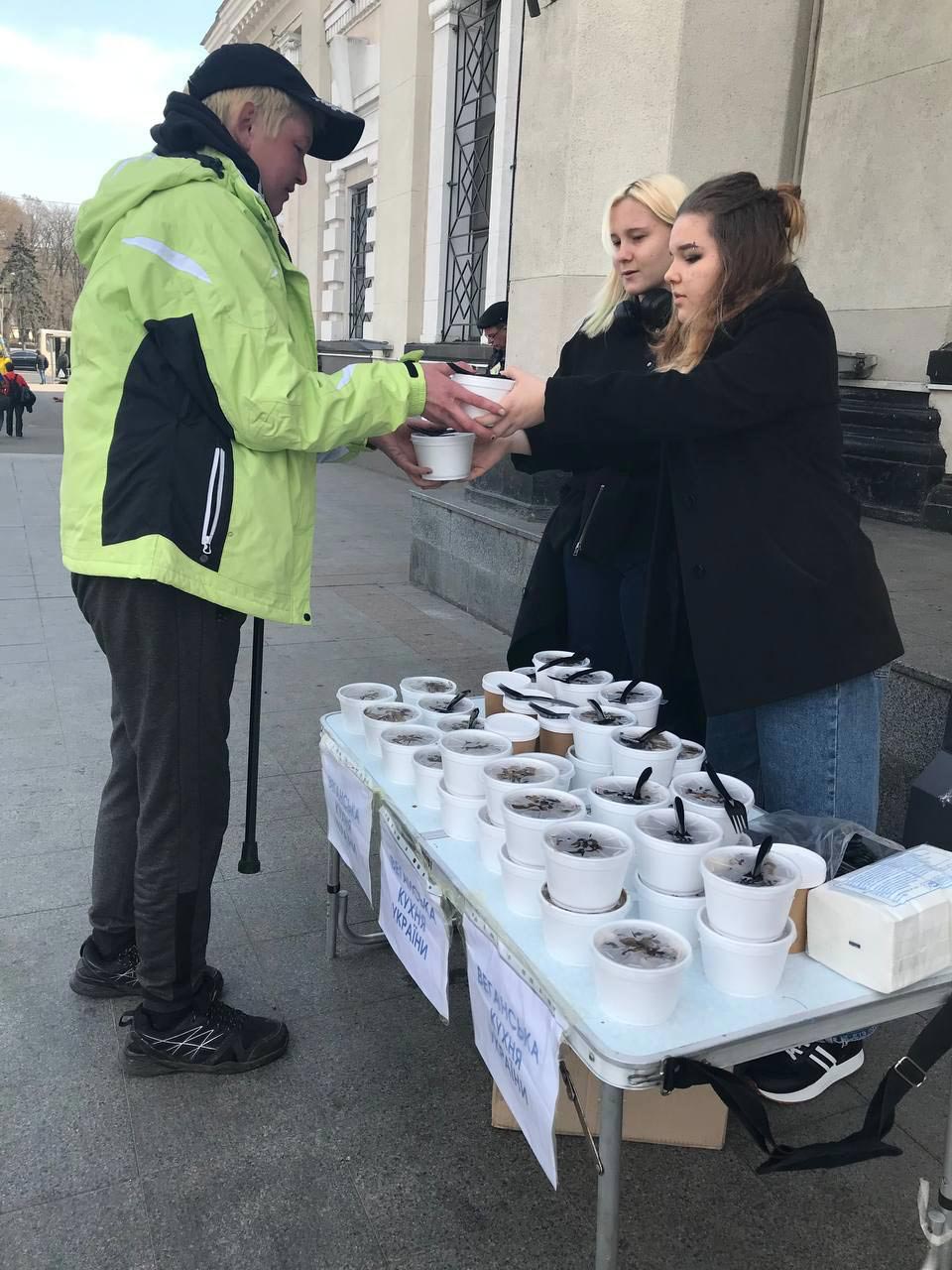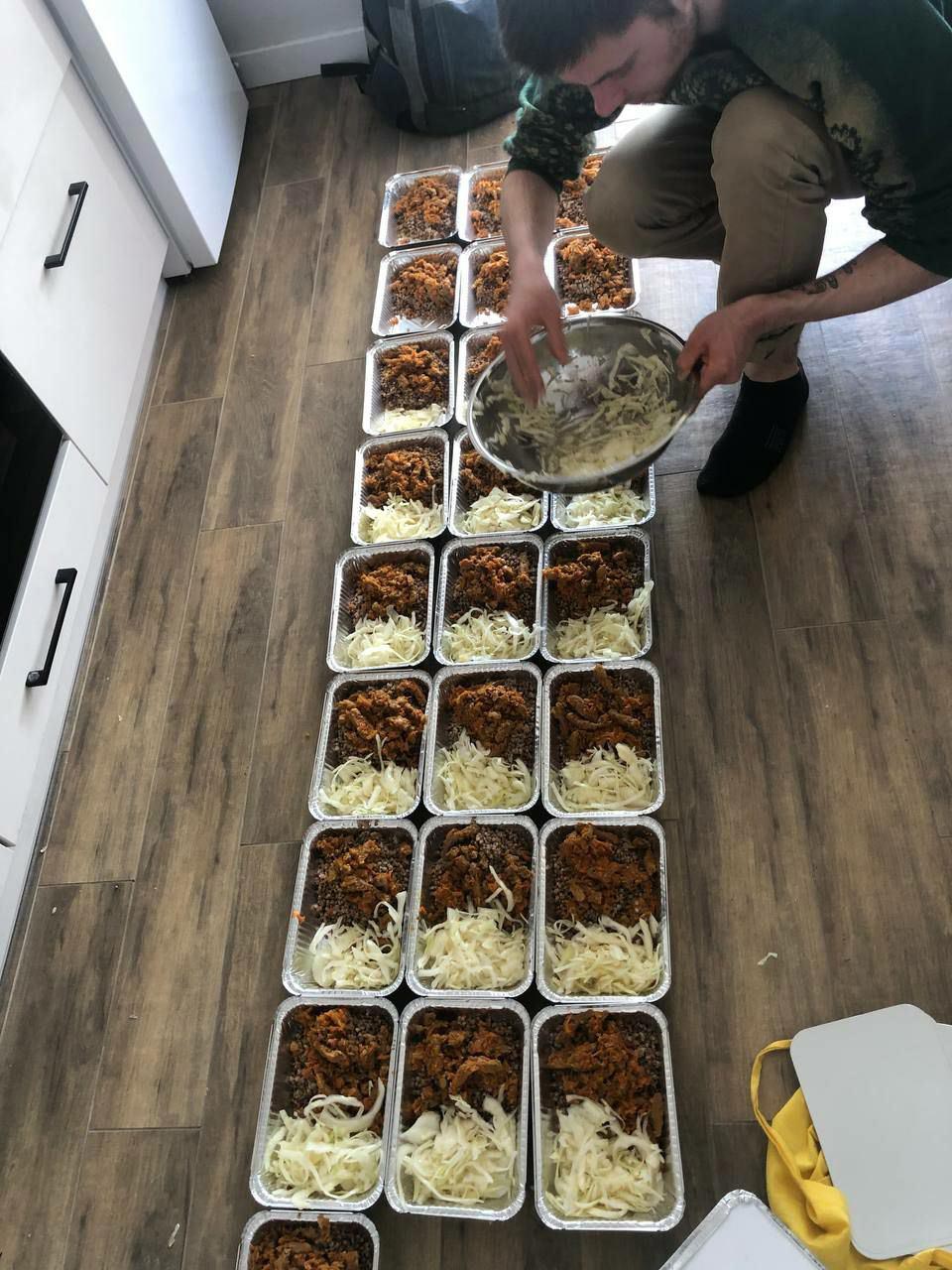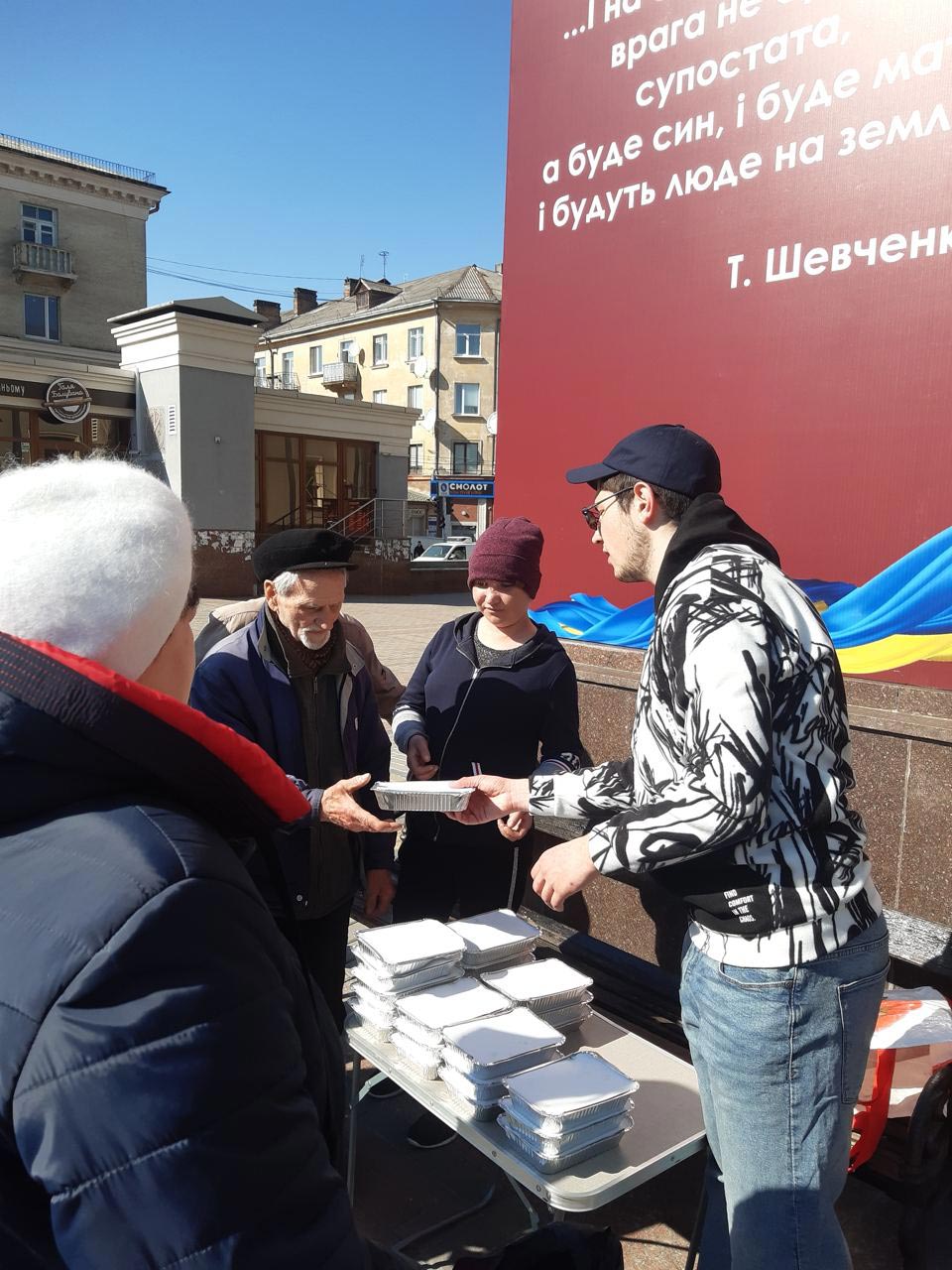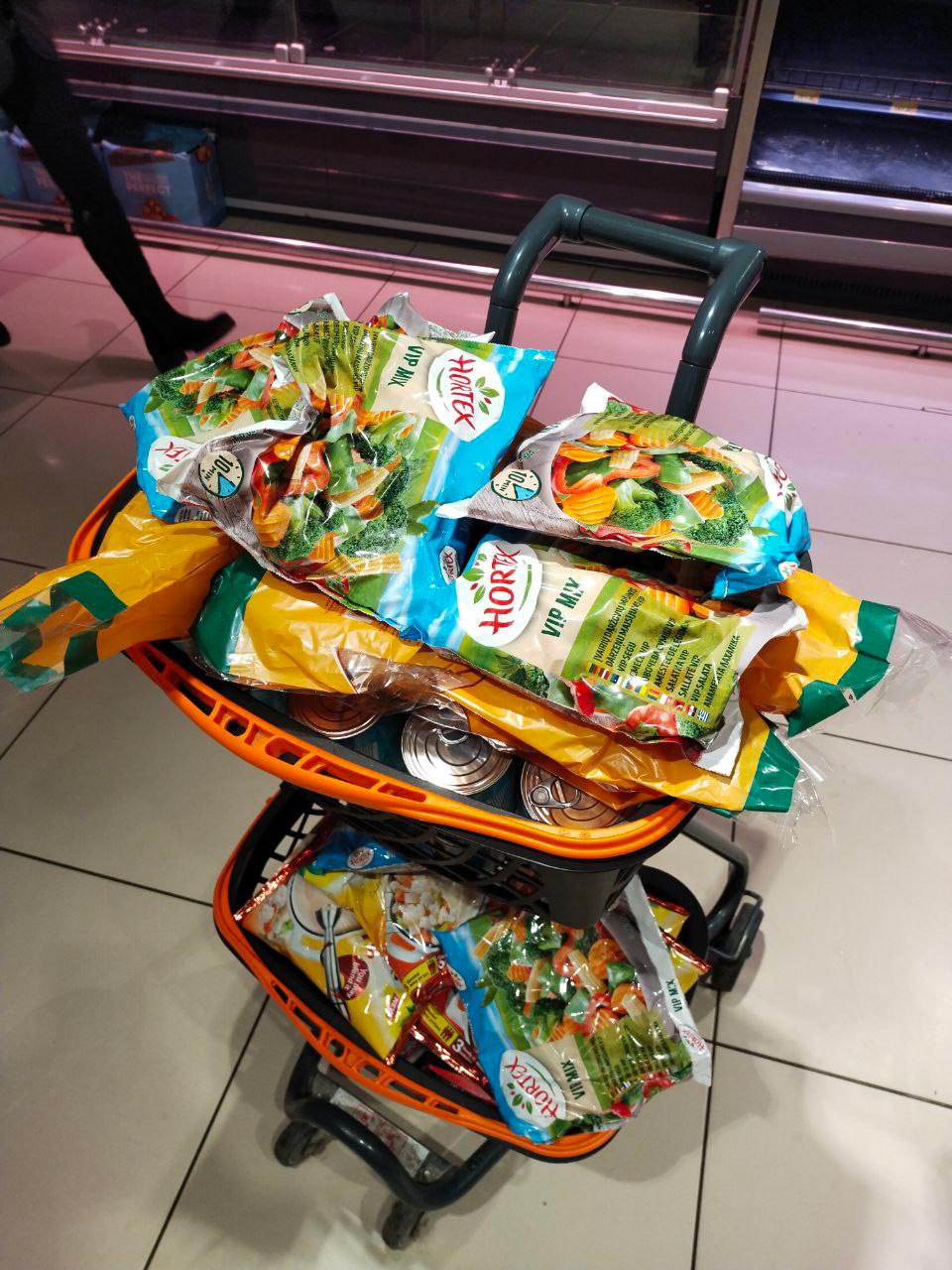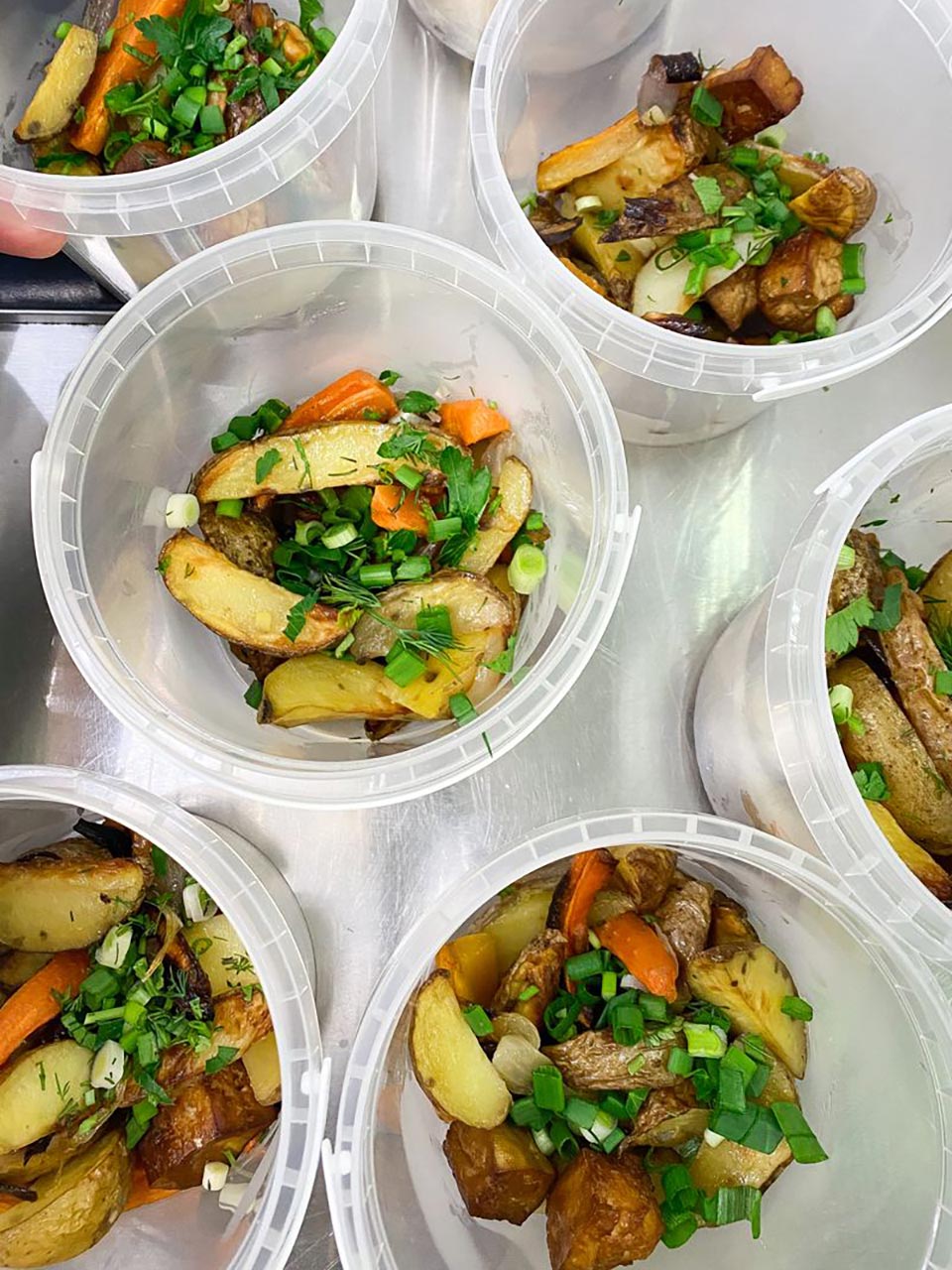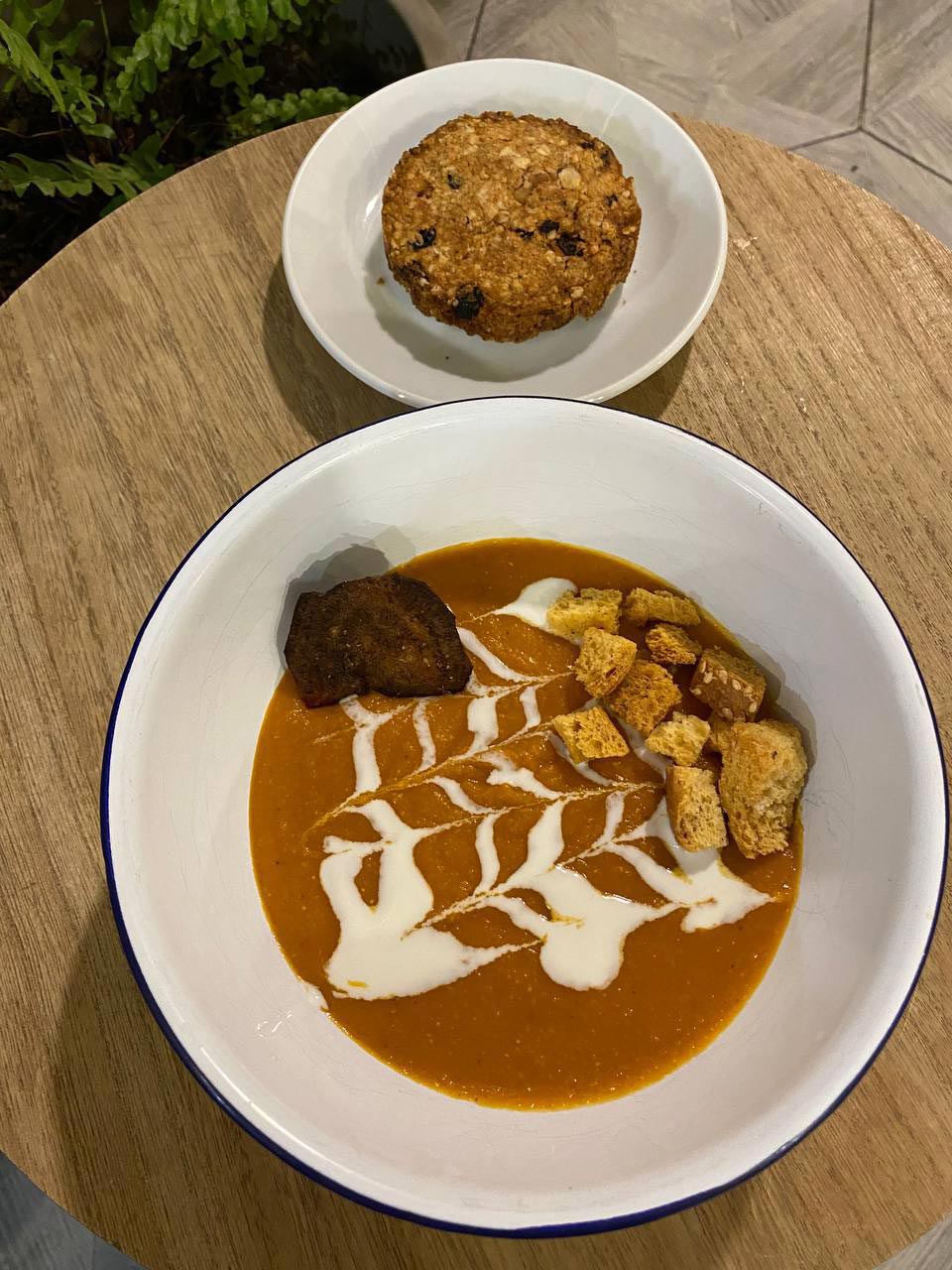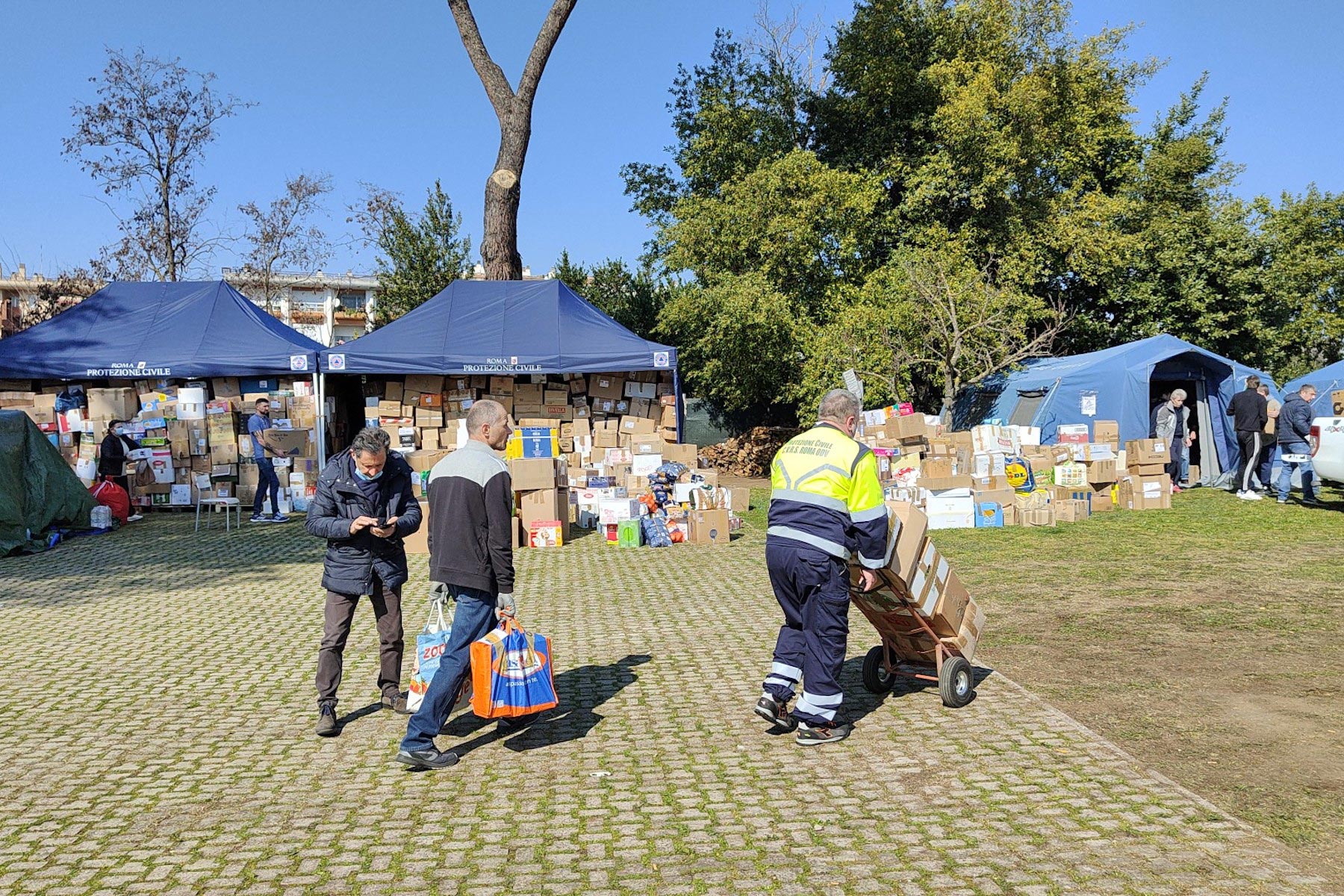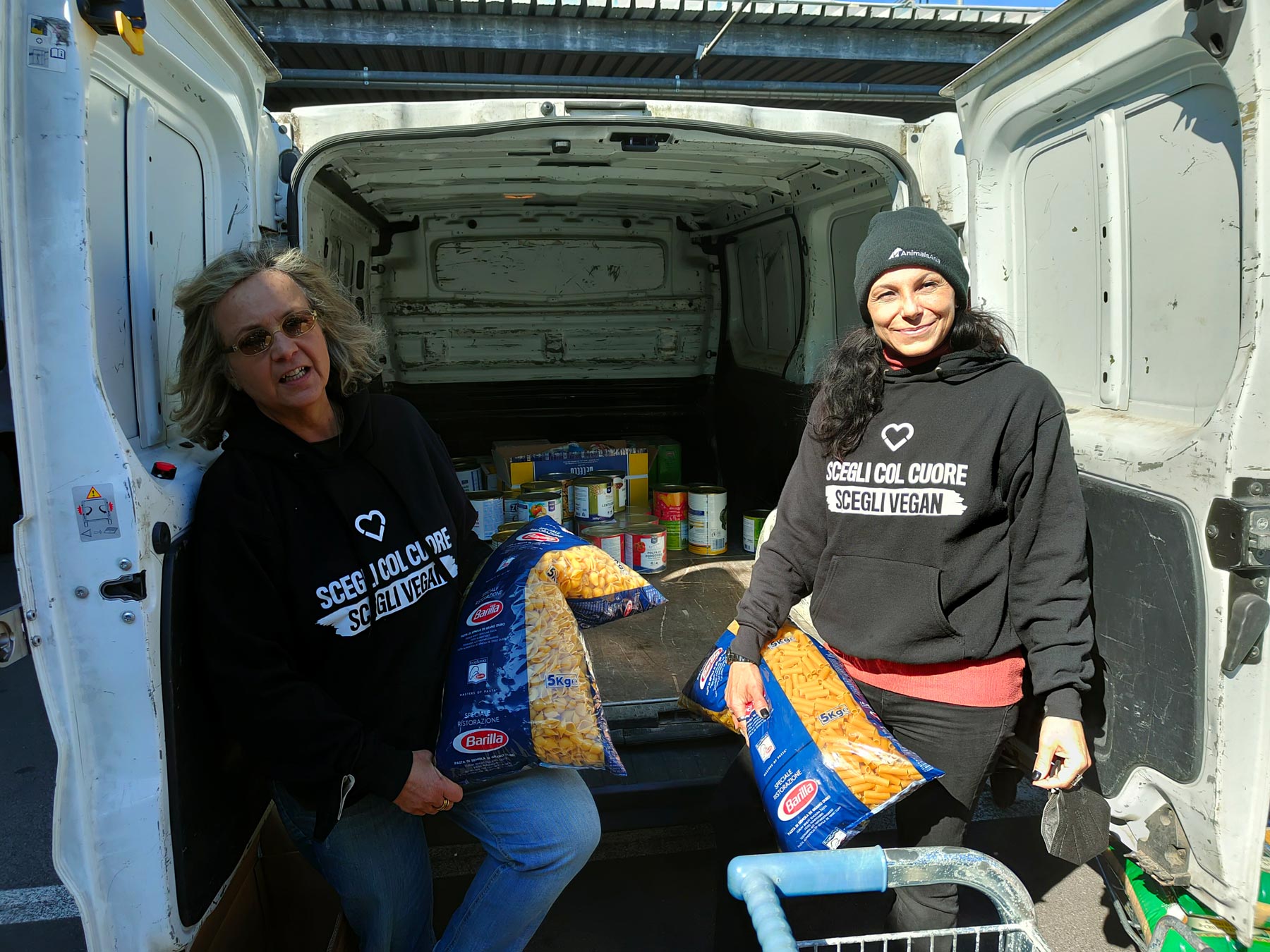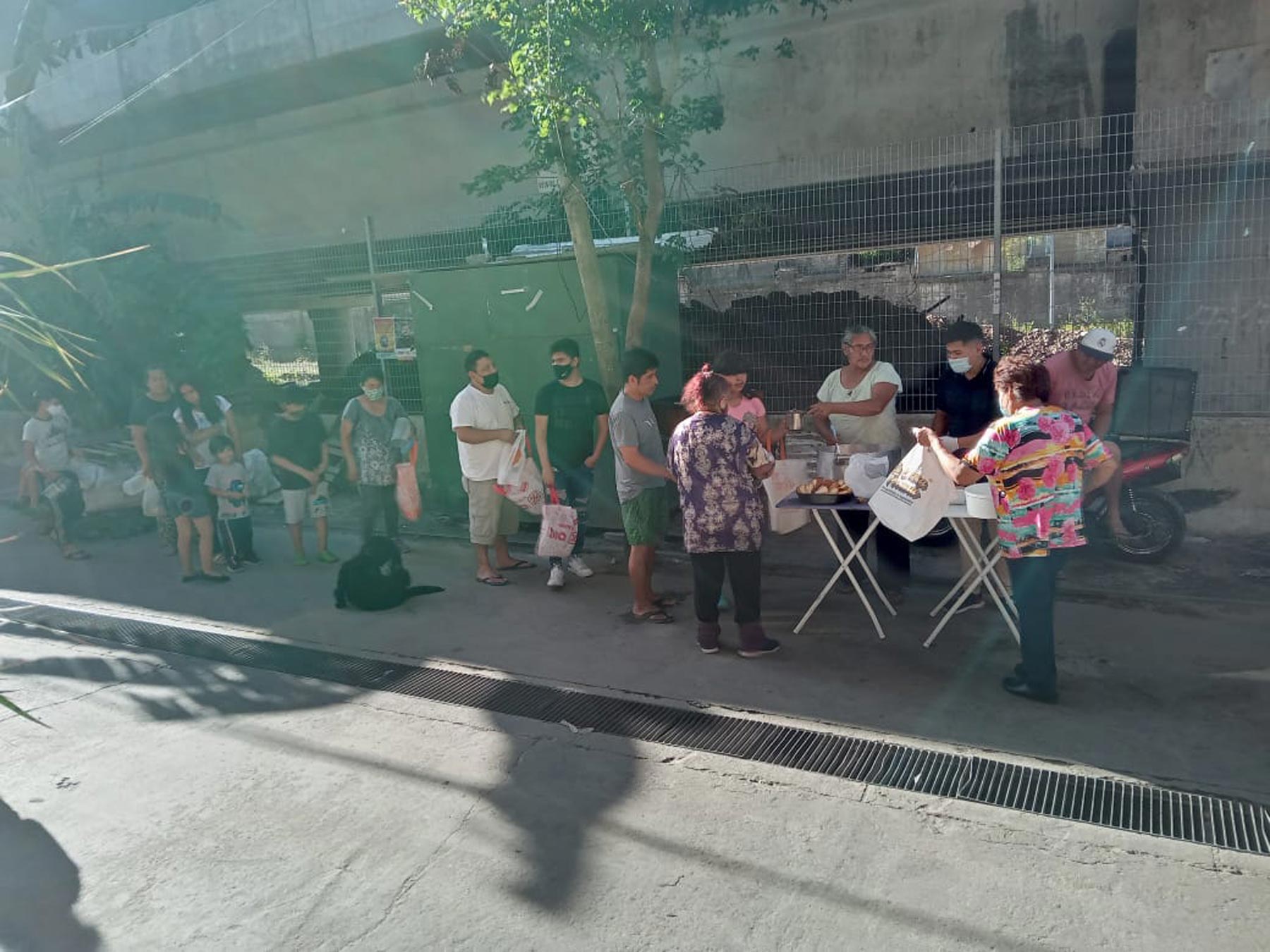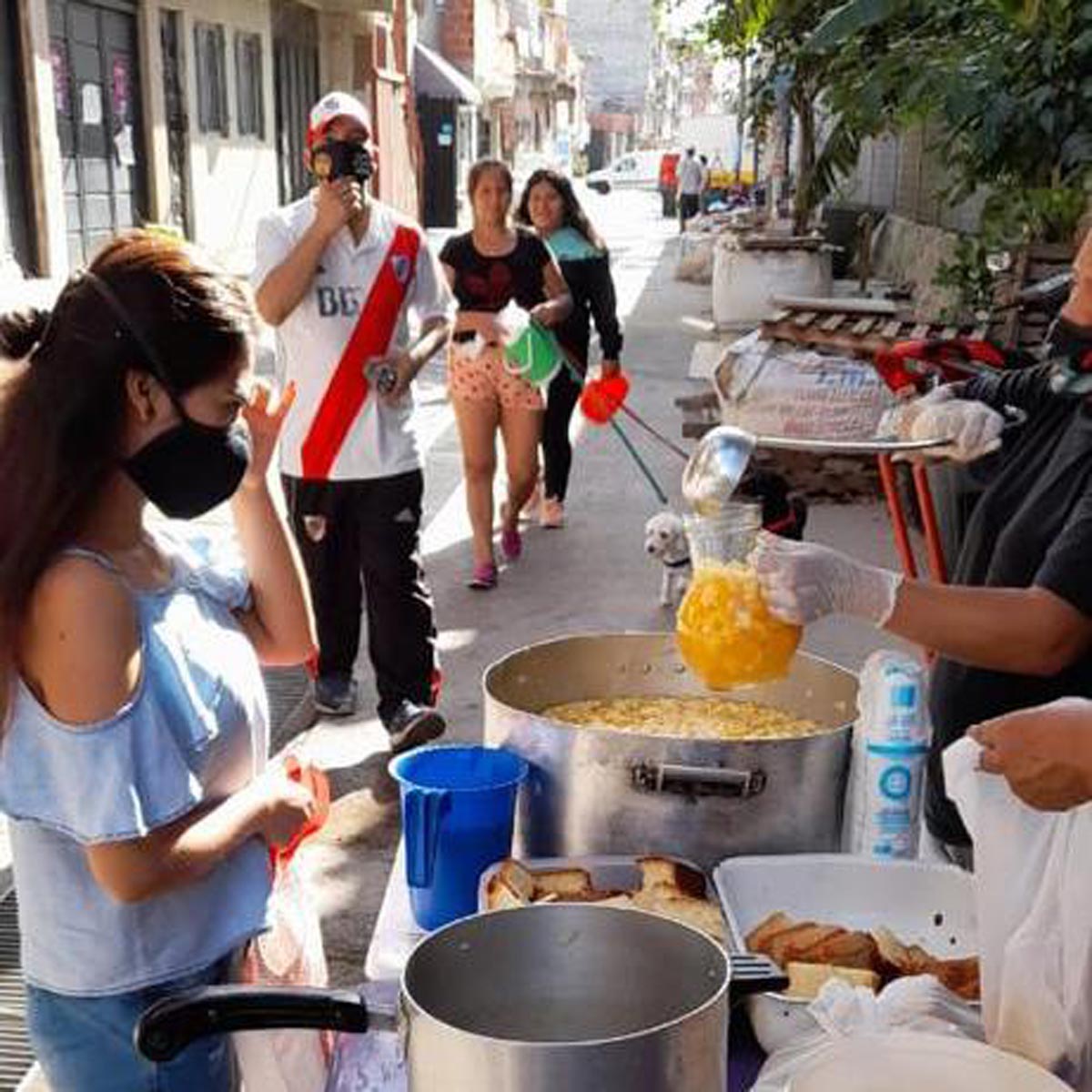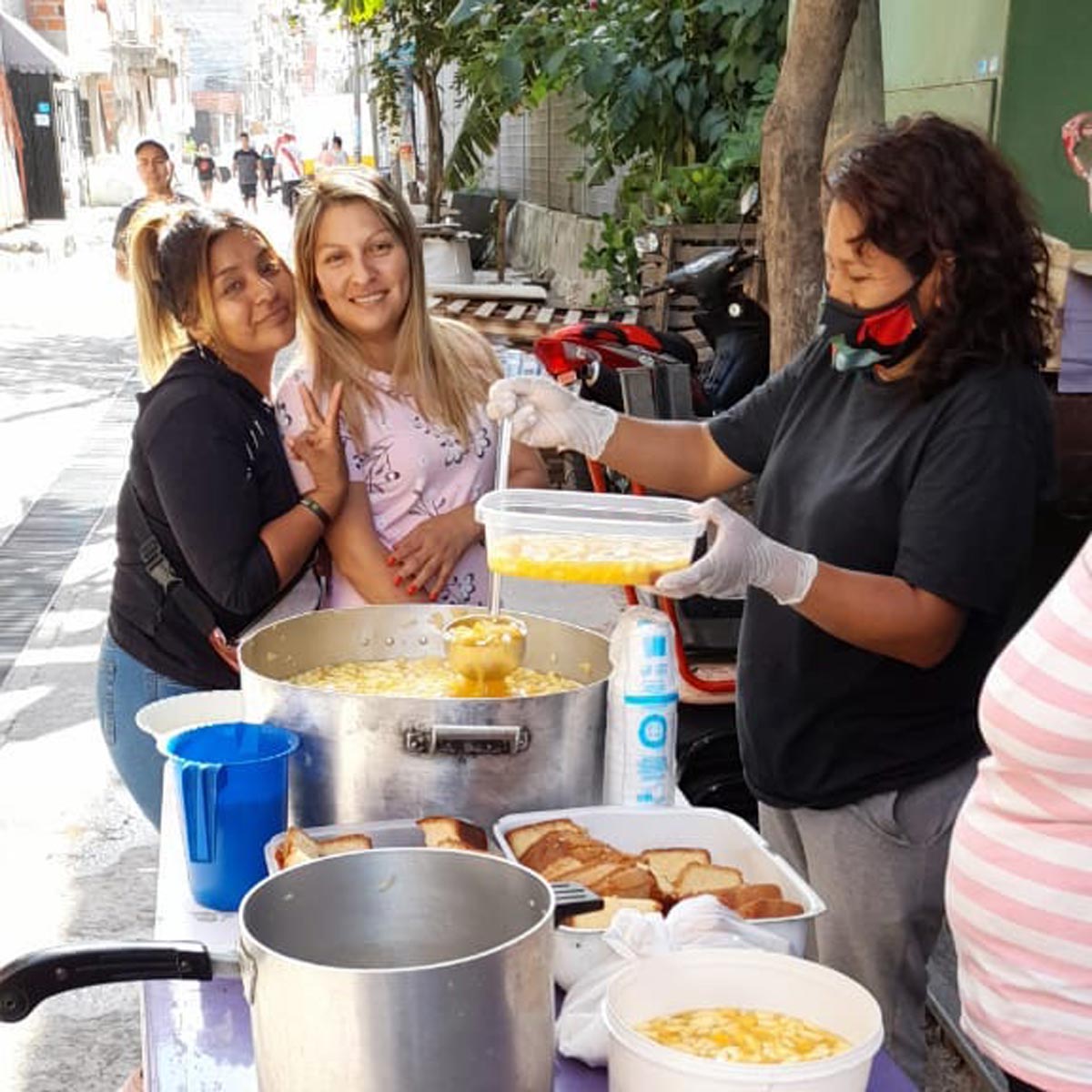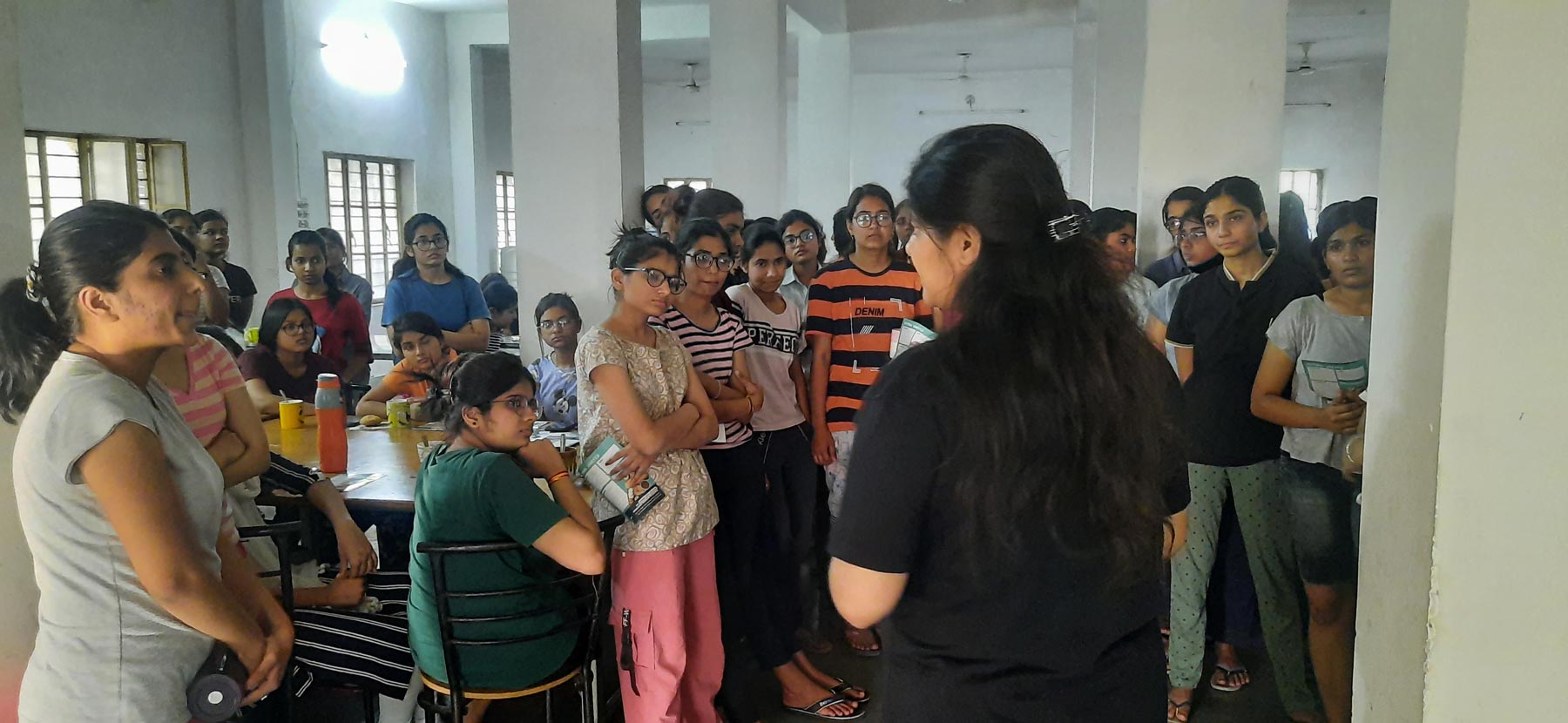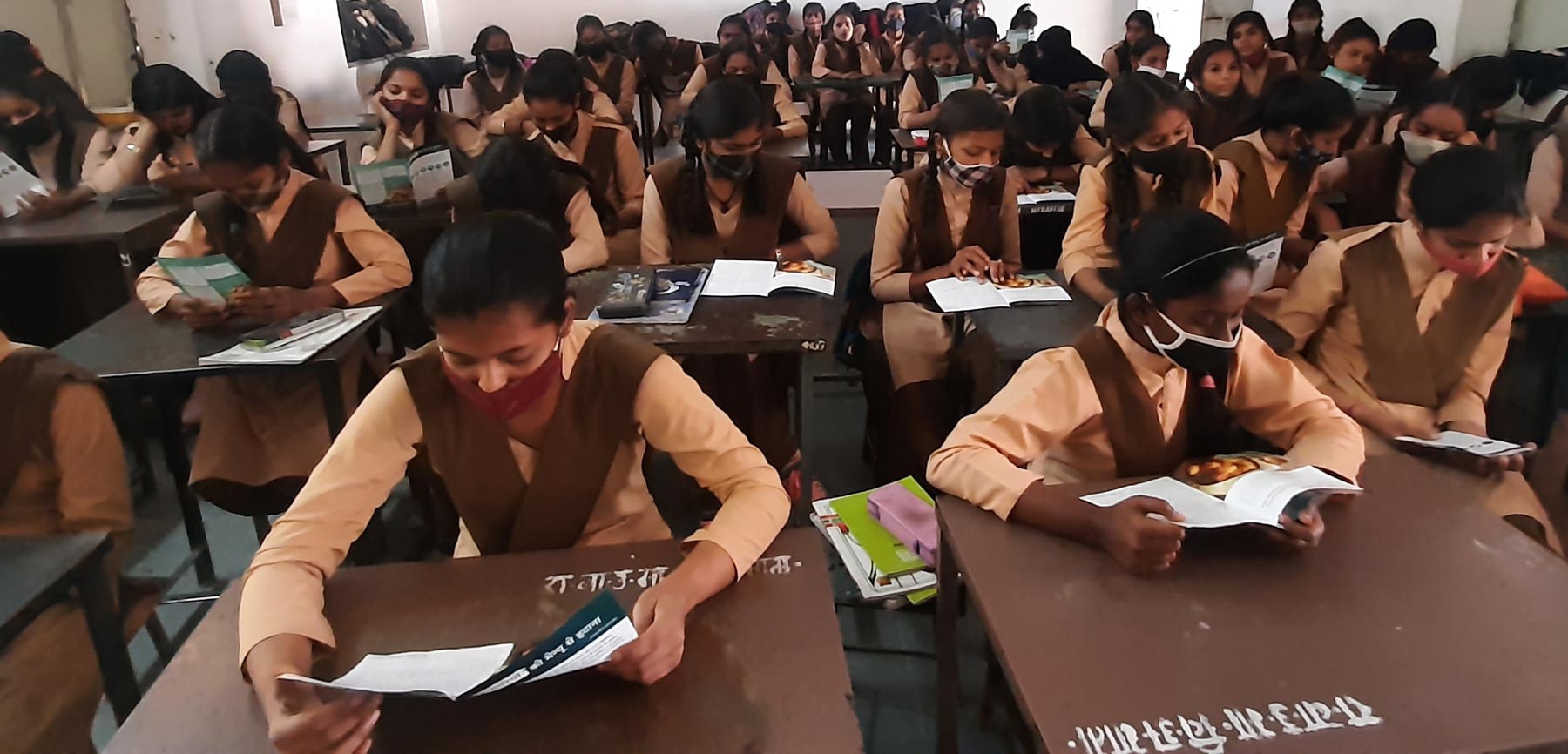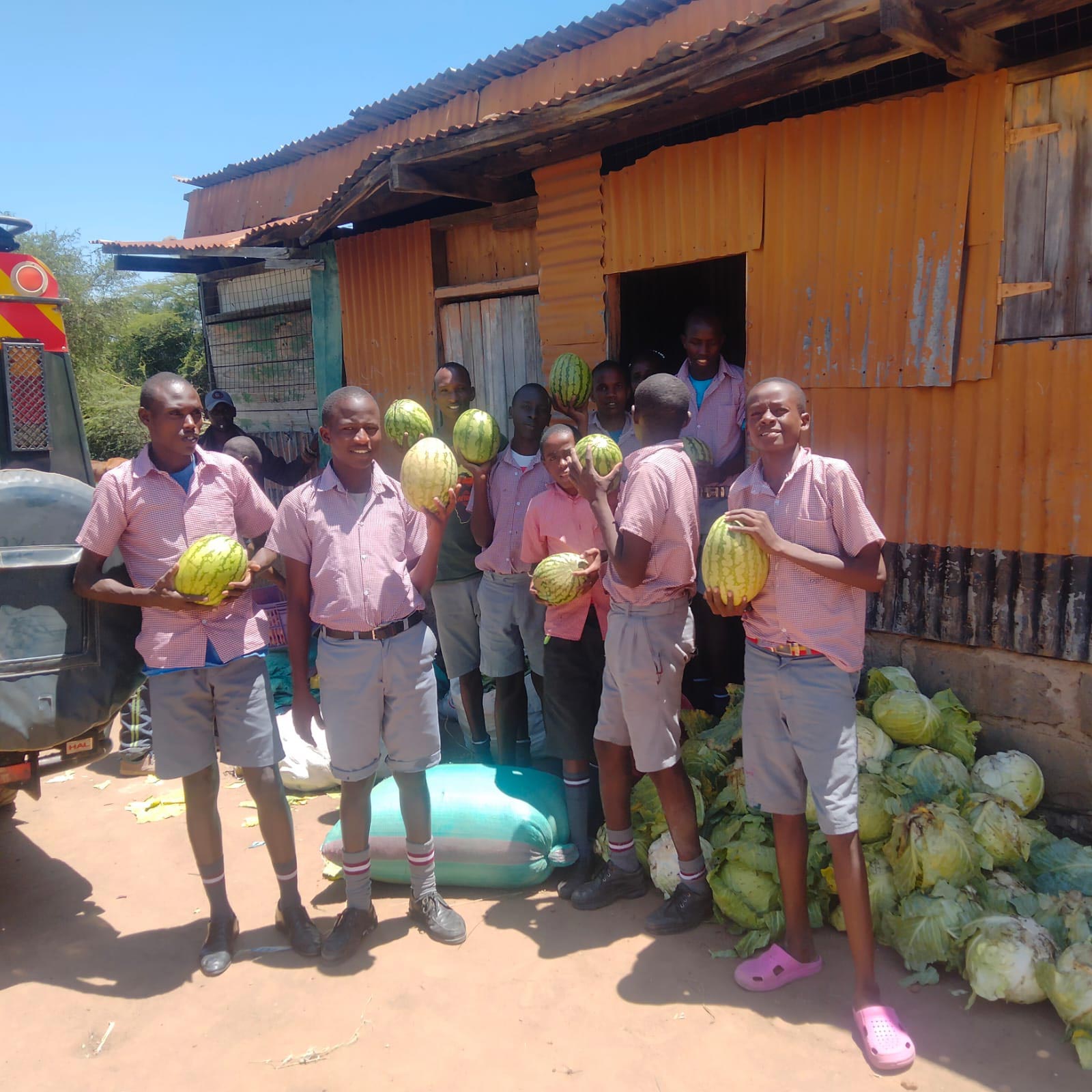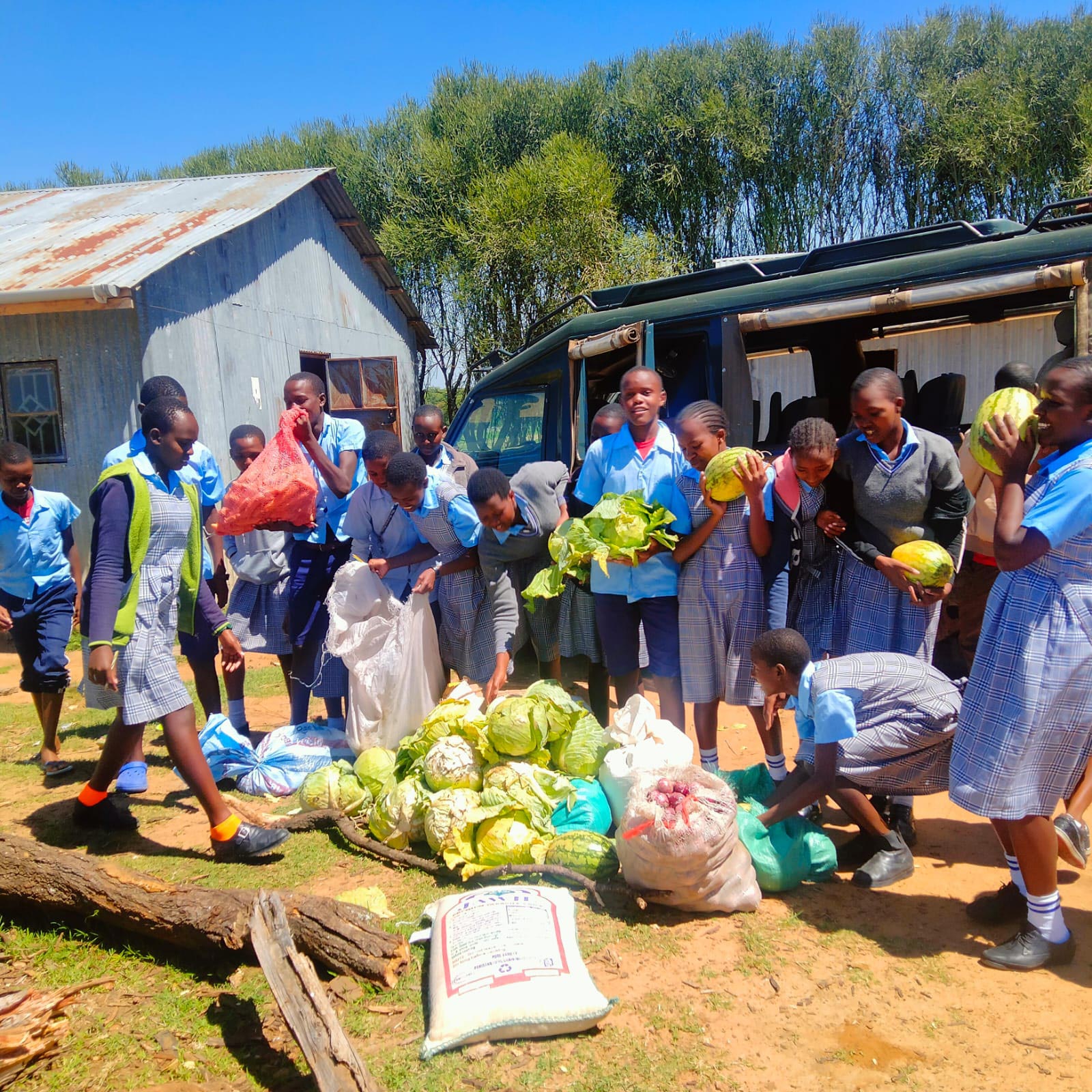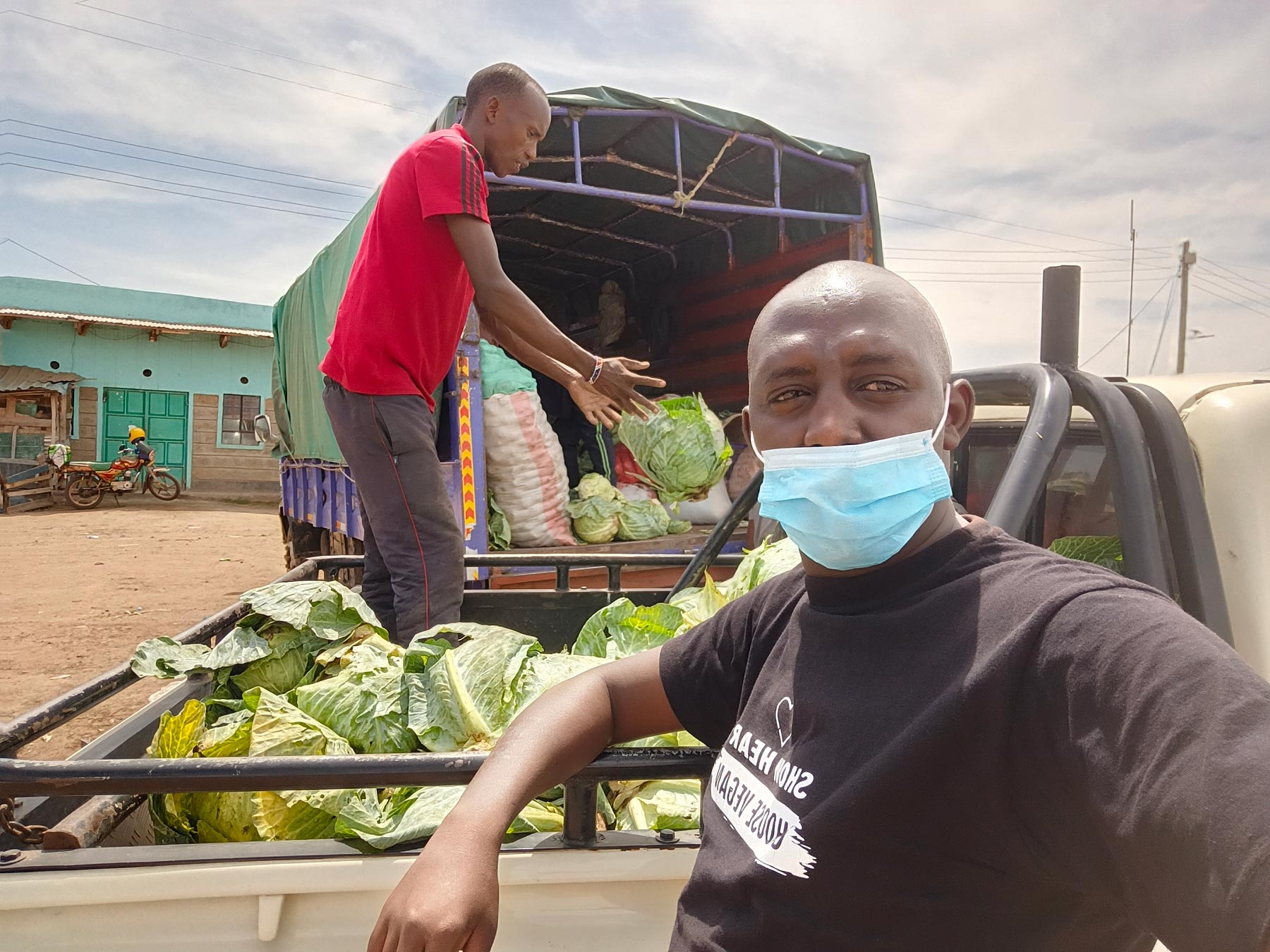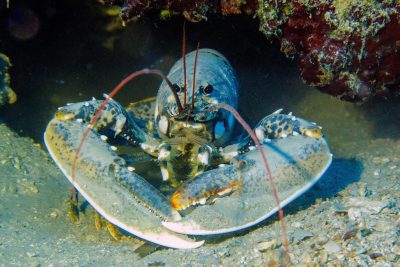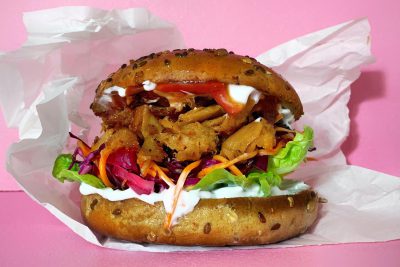Food Solidarity in Six Ukrainian Cities
Following the invasion of Ukraine, we made contact with vegan activists across the country to pledge our support as they worked to provide meals to people in their communities. Through vegan animal rights group Every Animal we are proud to fund food solidarity projects in eight locations across five cities: Odesa, Vinnytsya, Rivne, Uzhhorod, and Kyiv.
Tamara, who coordinates the food solidarity projects, told us they have already shared 2,500 meals free of charge, and have plans to start distributing meals in the city of Dnipro too.
We are also funding a ninth initiative in Kharkiv, through vegan cafe Lya ((ЛЯ VEGAN). Anya, the owner, who cooks and shares 40-60 free vegan meals a day writes: “I’m very grateful to you! Now we can feed our soldiers and civilians with delicious vegan food for a long time! Thank you. God bless you and your family, as well as all kind people on our planet.”
Anyone wishing to support vegan food solidarity projects in Ukraine can donate via:
- Every Animal, or
- Vega Room, which is also providing free vegan meals in Lviv
- Additionally, Lviv animal sanctuary Shelter for Tails is in desperate need of funds to help them care for the many abandoned and lost animals. You can donate via PayPal to [email protected]
- Or read Ten Ways to Help People and Animals in Ukraine
Italian Support for Ukraine
Our Italy Country Manager Steph bought supplies to make 2,500 meals and 700 snacks, and delivered them to the Ukrainian community in Rome. Some of it was then taken to the border while the rest was delivered directly to a “safe home” where approximately 50 Ukrainian women and children, and a little dog, are hosted. Steph remains in touch with the community and is further able to supply fresh vegetables, fruits, and nuts when needed.
She explained: “The MDV team is deeply moved by the tragedy and difficulties that the Ukrainian people have been facing for the past month, and we have tried to support them with healthy, nutritious plant-based ingredients that they can use to re-create familiar recipes in the community centers where they find refuge. We have also visited different blogs and websites to better understand their traditional foods, the flavors, and the most common ingredients. We have also provided lots of vegan chocolate bars and vegan chocolate and fruit spreads – our way of giving ‘food hugs’.”
Fresh Fruits for Buenos Aires
In March we resumed our food solidarity project with the soup kitchen Patria Grande, a community center in the Buenos Aires neighborhood of La Paternal.
Patria Grande is a soup kitchen situated in an underprivileged area called La Carbonilla, which in recent years has grown exponentially and so have its needs. That is why they not only work as a soup kitchen, but also provide school support for the children of the neighborhood.
Every Thursday, María Flores, who is in charge of the community center, transforms seasonal fruits such as red apples, peaches, oranges, bananas, and autumnal tangerines into a delicious and nutritious fruit salad.
In total this month, Million Dollar Vegan Argentina reached two community centers in the city of Buenos Aires with 70kg of fruit per week. They were able to share this food with 250 children and adults, making a total of 1,000 portions, and we have plans to do more!
Our goal for the upcoming afternoon refreshments is to create a winter menu, containing seasonal foods that are free of agrochemicals, to encourage more people to join this revolution of love and compassion towards animals, the community, and the environment every day.
Sharing Food With Students in Udaipur
This month, our team in India once again partnered with Farah Ali and Pramod Singh Negi of the amazing Vegan Beings restaurant to share vegan love and some tasty food with school and college students.
For an International Women’s Day food solidarity project, we shared Chickpea Chaat (a healthier version of Bhel Puri, which is a delicious popular snack that is vegan by default) as well as Sweetened Coconut Milk and Coconut Laddus (traditional sweet balls) with over 1300 students. The students, who attend five government Girls’ Senior Secondary Schools, got to learn about a whole food plant-based diet and how it can help reverse lifestyle diseases. They also learnt about how our food choices can be the reason for the outbreak of zoonotic diseases that may end up becoming a worldwide pandemic.
One of the students told us: “I always thought that cooking would be difficult for vegans and had never thought about how we already eat vegan food regularly. I always thought it was a western concept, but it actually is the Indian concept of Ahimsa, or non-violence. I really thank Farah Ma’am for explaining it so well to us.”
We were also invited to introduce plant-based milk to over 250 students at the College of Dairy and Farm Technology. We shared delicious Red Pasta and Sweetened Coconut Milk with them, and were delighted to see how receptive they were to learning more about plant-based milk and vegan food in general. Many, including those from farming families, had never before considered the ethics of exploiting mother cows and buffaloes for their milk, and they asked lots of relevant questions to clear their doubts.
Farah and Pramod said: “This was a golden opportunity to let people know how delicious vegan food is (and how easy it is to make it). We started our café with just that intention and we’re so happy we could share the vegan versions of some of the most popular dishes among more than 1500 young students. We were also delighted to answer questions about plant-based milk from the students of the College of Dairy and Farm Technology. We hope they will shift their interest to making these instead of being involved in the dairy industry.”
Continuing our Work in Kenya
Meanwhile, we continue to share 45,000 meals each month at three schools in Kenya. Our Kenya Country Manager Jack arranges provisions so that the children have porridge in the morning, as well as hot lunches and evening meals. All three schools now serve only vegan food.
Droughts, low crop yields, and the starvation of farmed animals has become a serious problem in recent times, and the school children love the fresh foods we share, and are always keen to tell us how eating these will help the planet, too!
Says Jack: “We’re grateful to be able to extend our food program to facilitate learning by ensuring no child learns while hungry today, tomorrow and in the days to come. Especially during this pandemic crisis, we can take pandemics off the menu by changing our diets. The current pandemic crisis and drought that has brought a standstill to Maasai land enables us to raise our voice and create awareness of the i,portance of veganism so as to preserve, conserve and protect planet Earth. And, the nutritious vegan diet helps the children grow strong and healthy. We’re grateful to serve our community. Together we can make the world a better place for tomorrow. Together we can!”
